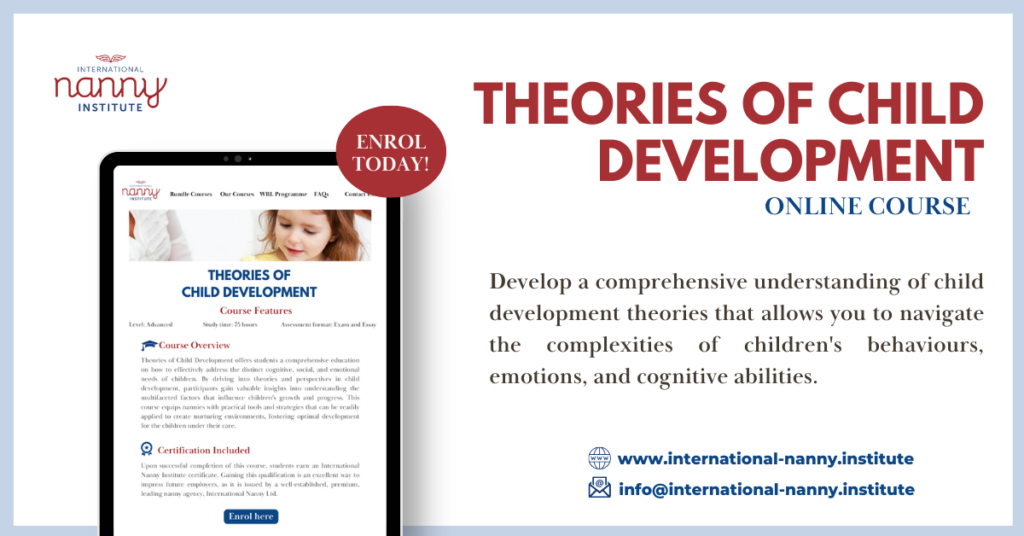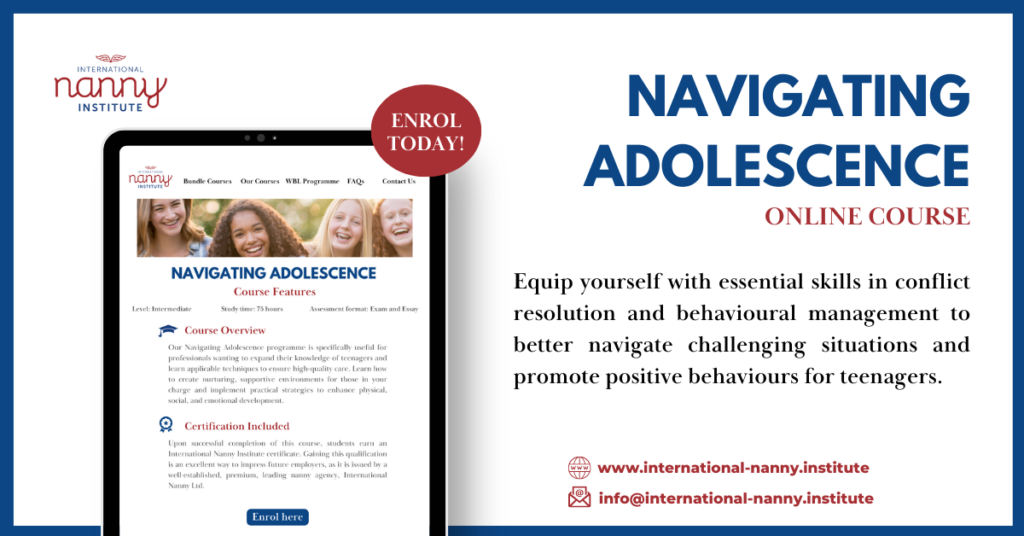As a professional nanny, you are entrusted with the profound responsibility of caring for and nurturing the children in your charge. While your day-to-day duties may involve tasks like meal preparation, playtime, and bedtime routines, your role extends far beyond the practical aspects of childcare. At the heart of your work lies the critical task of helping the children in your care develop secure attachments – bonds that will shape their social-emotional well-being and lay the foundation for all their future relationships.

Introduced by renowned psychologist John Bowlby, Attachment Theory explores the pivotal role that early caregiver-child relationships play in a child’s overall development. According to this influential framework, the quality of the attachment formed between a child and their primary caregiver(s) directly influences the child’s sense of security, ability to regulate emotions, and capacity for forming healthy connections with others.
As a nanny, you have the special opportunity to become a primary attachment figure in the lives of the children you serve. By cultivating a secure attachment, you can provide the stability, responsiveness, and emotional support that children need to thrive.
Here are the key principles of Attachment Theory and how you can apply them in your nanny practice:
Sensitivity and Responsiveness
Bowlby emphasised the importance of a caregiver’s sensitivity and responsiveness to a child’s needs. When you quickly and consistently attend to a child’s signals – whether it’s soothing a crying infant or validating a toddler’s frustration – you demonstrate that you are a reliable, trustworthy source of comfort and support. This, in turn, helps the child develop a deep sense of security and trust.

Consistent and Predictable Caregiving
Children crave stability and routine, especially during their early years. By maintaining a predictable daily schedule, following through on your commitments, and providing a nurturing, familiar presence, you can help the children in your care feel safe and secure, reducing their stress and anxiety.
Emotional Attunement
Attachment theory highlights the significance of emotional attunement – the caregiver’s ability to recognise, understand, and respond appropriately to the child’s emotional states. When you demonstrate empathy, validate feelings, and help children navigate their emotions, you foster a deep emotional connection that supports their social-emotional development.

Secure Base and Safe Haven
As a secure attachment figure, you provide the children with a “secure base” from which they can safely explore the world, knowing that you will be there to support and comfort them when needed. Your role as a “safe haven” allows the children to take risks, learn, and grow, confident in the knowledge that you will be there to welcome them back.
Forming Healthy Attachments
While attachment styles are initially shaped by the child’s earliest caregiving relationships, they can evolve over time. As a nanny, you have the power to help children develop a secure attachment, even if they have experienced disruptions or challenges in their past. By consistently meeting their needs and providing a reliable, nurturing presence, you can help them overcome insecure attachment patterns and learn to form healthy, meaningful connections.

By embracing the principles of Attachment Theory and weaving them into your daily interactions with the children in your care, you can become a transformative force in their lives. As a secure attachment figure, you have the ability to foster a deep sense of trust, emotional regulation, and resilience – gifts that will continue to enrich the lives of the children long after your time as their nanny has ended.
Are you ready to take your nanny practice to new heights by mastering the principles of Attachment Theory? Look no further than International Nanny Institute’s online course “Theories of Child Development.” This course will empower you to forge unbreakable bonds with the children in your care, cultivating the trust, security, and emotional intelligence that are the hallmarks of a truly exceptional nanny. Enrol today and unlock the secrets to becoming a transformative figure in the lives of the families you serve, leaving a lasting impact that extends far beyond your time as their nanny.































